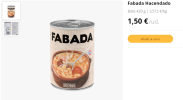D
Deleted member 595781
Guest
Hi all,
In early December, I went to see the doctor for something completely unrelated (eczema) and due to my age (51), she said it would be a good idea to get a full test done (blood, urine, faeces). Fortunately, when I got the results, everything (except diabetes stuff) was absolutely fine and within normal ranges.
The abnormal results were:
Fasting glucose: 17.6
HbA1c: 12.6%
Ketones (in urine): 15
To put this into context, I am a normal weight with a BMI of 22.7. I don't smoke and rarely drink. I exercise 5-6 times per week (walking around 10km per day) and normally follow the so-called Mediterranean diet (I've lived in Spain fo the last 20 years, so I guess I should do).
With that diagnosis, the doctor has started me on the following treatment:
Metformin 850: 2 per day
Humalin: 14IU twice per day (immediately after lunch and immediately after dinner)
Humalog: up to three times per day (at breakfast, two hours after lunch, two hours after dinner) with the amount depending on sugar level.
Due to the high sugar levels and not having any risk markers for Type 2, I had another blood test for C-Pepitde levels. The result was 1.5ng/mL compared to a normal range of [0.81-3.85].
I'm not an expert, but have done a lot of reading since all this started (and may be wrong on much).
My understanding is that as the C-Peptide result isn't above the normal range, it shows that I'm not insulin resistant and rules out Type 2, but not being below normal level doesn't mean Type 1/1.5
Unfortunately, I live in a small town and there isn't a diabetes specialist at my health centre to ask. There is actually a bit of a crisis there right now with only 7 doctors available when there should be 16 so you can't get an appointment for love nor money.
Despite being fit, healthy and normal weight, etc. is it really possible that I have Type 2 diabetes (which my current medical notes say), or is something else going on? Throughout this, I've had zero symptoms/signs that anything was wrong.
The only thing I'm 100% certain on right now is that it isn't gestational diabetes.
Congratulations if you made if this far, and any help/advice would be greatly appreciated
In early December, I went to see the doctor for something completely unrelated (eczema) and due to my age (51), she said it would be a good idea to get a full test done (blood, urine, faeces). Fortunately, when I got the results, everything (except diabetes stuff) was absolutely fine and within normal ranges.
The abnormal results were:
Fasting glucose: 17.6
HbA1c: 12.6%
Ketones (in urine): 15
To put this into context, I am a normal weight with a BMI of 22.7. I don't smoke and rarely drink. I exercise 5-6 times per week (walking around 10km per day) and normally follow the so-called Mediterranean diet (I've lived in Spain fo the last 20 years, so I guess I should do).
With that diagnosis, the doctor has started me on the following treatment:
Metformin 850: 2 per day
Humalin: 14IU twice per day (immediately after lunch and immediately after dinner)
Humalog: up to three times per day (at breakfast, two hours after lunch, two hours after dinner) with the amount depending on sugar level.
Due to the high sugar levels and not having any risk markers for Type 2, I had another blood test for C-Pepitde levels. The result was 1.5ng/mL compared to a normal range of [0.81-3.85].
I'm not an expert, but have done a lot of reading since all this started (and may be wrong on much).
My understanding is that as the C-Peptide result isn't above the normal range, it shows that I'm not insulin resistant and rules out Type 2, but not being below normal level doesn't mean Type 1/1.5
Unfortunately, I live in a small town and there isn't a diabetes specialist at my health centre to ask. There is actually a bit of a crisis there right now with only 7 doctors available when there should be 16 so you can't get an appointment for love nor money.
Despite being fit, healthy and normal weight, etc. is it really possible that I have Type 2 diabetes (which my current medical notes say), or is something else going on? Throughout this, I've had zero symptoms/signs that anything was wrong.
The only thing I'm 100% certain on right now is that it isn't gestational diabetes.
Congratulations if you made if this far, and any help/advice would be greatly appreciated
Last edited by a moderator:

